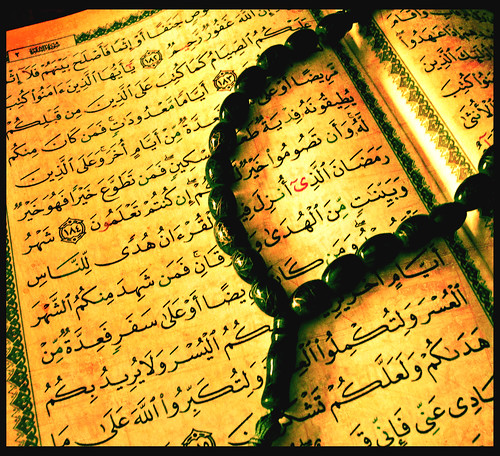
Many women say that they would rather fast when everyone else is fasting instead of making their fasts up later. If you are one of those women, I hope this can help prepare you physically for the fast of Ramadan. Studies conducted about pregnant women fasting in Ramadan have found no adverse outcomes in the baby's birth weights, length, and head circumference. The fast of Ramadan also has not been found to adversely effect milk supply in lactating women, although it can alter the content of breast milk, but without affecting infant growth.
Pregnancy can be a challenging time to fast depending on when the fast falls in your gestation. Nina Planck, a real food expert and author, has written a wonderful book called Real Food for Mothers and Babies that breaks up pregnancy's nutritional needs by trimester. Planck says that in the first trimester, when the organs of your baby are developing, your embryo needs minerals to become a strong fetus. The bones and muscles are doing most of the growing in the second trimester, so your baby needs calcium and protein rich foods. In the third trimester, the eyes, brain, and nervous system are rapidly developing; fats high in Omega 3's will aid this growth.
If we base our Ramadan diet on Planck's demarcations, what are the best foods to nourish you and baby in each trimester? Fasting in Ramadan offers us only a few exchanges with food, so we need to make each of these encounters nutrient dense and filled with what our growing babes need. You will notice a theme throughout my recommendations and that is good fats and protein. Good fats include, coconut oils, olive oils, fish oils, butter, and tallow. Your baby's development needs cholesterol. You need good fats and protein to support this. This duo also supports mother's in their health and well being through pregnancy, therefore you will see multiple mentions of healthy fats and proteins.
In the first trimester many women often need to eat constantly to keep nausea at bay. Others do better with no food. Either way, your baby has to grow. If you choose to fast during this time, I really like a few foods to help you out. Much of nausea comes from hunger. When you eat, eat foods filled with protein and good, healthy fats. For the suhoor, the morning meal before dawn, try any of the following:
- Smoothies with egg yolks, coconut oil, milk, and yogurt and lots of fresh fruit. The fruit will give you plenty of the micro-nutrients which your baby's organs need and the yolks, oils, and yogurt will give you good fats and proteins for fuel throughout the fast.
- Eggs are a great suhoor meal for pregnant women. Make an omelette with lots of vegetables -- again this will give you a mix of micro-nutrients and protein.
- Oatmeal with lots of butter, cream, milk, or coconut milk. Add nuts and fruits for a complete suhoor.
- I do recommend eating at least three times a day in Ramadan, the suhoor meal, an iftar meal, and then again about an hour before going to bed. This still provides the same caloric intake, albeit not at the regular times you usually eat.
The first trimester is a big adjustment. Take it easy and don't push yourself to exhaustion. Read my post on the first trimester, where you will find many tips that you can do while fasting. I personally think essential oils, like lavender, ginger, and geranium go a long way in helping with nausea, fasting or not. Also, fresh air can alleviate nausea for many women. Get out and go for a walk right before you break the fast.

When Ramadan falls in the second trimester, it is perhaps the easiest time for you to fast while pregnant; the nausea has mostly passed, and you have regained some of your energy but don't yet feel uncomfortable from the weight of your baby. Here are some general tips for fasting and breaking your fast in the second trimester.
- If you can, try to switch your nights and days. During the day, stay inactive and rest as much as you can. If you need to do anything active, like clean or cook, wait until shortly before the sun sets so that you can eat and drink soon after.
- Try fasting every other day.
- Do gentle exercises like yoga, tai chi, or walking shortly before the sun sets.
- Don't skimp out on sleep! This is hard in Ramadan, especially during the summer months, but try your best not to exhaust yourself.
- Because protein and calcium are important this trimester, be sure to include lots of protein rich foods in your meals. Meats, broths, eggs, and lentils are wonderful and healthy choices.
- Calcium rich snacks can be eaten between iftar and bedtime. Almonds, warmed milk with cinnamon, ginger and a pinch of sugar, yogurt with fruit.
- Dates, the traditional food to break the fast with, are an excellent way of revitalizing the body after a day of fasting. High in potassium, iron, anti-oxidants, and other minerals, they are also perfect as a second trimester treat.
- Try eating fish when you break your fast. Fish is easy to prepare and full of healthy fats well suited for growing noggins. Check out Seafood Watch for more information on which fish is best for you and the environment.
- I love herbal infusions in pregnancy. They are especially great for women facing the great task of birth, and subsequent mothering. Alfalfa, red raspberry leaf, nettles, and oatstraw are wonderful third trimester choices. Drink them mixed or separately. They contain an amazing amount of minerals and micro-nutrients, all of which saturate your tissues and muscles with nutrients that help them work efficiently in labor.
- Egg yolks, butter, whole fat milk, and all other foods rich in cholesterol can be considered brain food. So go ahead and have eggs and toast with lots of butter for suhoor. Your baby will be smarter;)!
 Staying hydrated is actually a bigger concern than caloric intake for fasting pregnant and nursing women. Abstaining from water all day can be a real challenge while pregnant and/or nursing. I suggest that when you eat in the morning and in the evening, drink an electrolyte drink, preferably not Gatorade as it has tons of sugar and other undesirable preservatives. Try this mixed in your water. Coconut water is another refreshing way to replenish your electrolytes. Vitamin Water and Re-Charge are also good choices. Electrolytes help the water replenish and hydrate you. Without them it often seems that the water just rushes through you!
Staying hydrated is actually a bigger concern than caloric intake for fasting pregnant and nursing women. Abstaining from water all day can be a real challenge while pregnant and/or nursing. I suggest that when you eat in the morning and in the evening, drink an electrolyte drink, preferably not Gatorade as it has tons of sugar and other undesirable preservatives. Try this mixed in your water. Coconut water is another refreshing way to replenish your electrolytes. Vitamin Water and Re-Charge are also good choices. Electrolytes help the water replenish and hydrate you. Without them it often seems that the water just rushes through you!Nursing and fasting is often more difficult than pregnant while fasting. That is simply because while nursing, you also have to change diapers, push the stroller, and carry and nurse the baby. There is more work involved! All of the above recommendations can apply to nursing women. Along with a few of these:
- Add one tablespoon of coconut oil a day. You can eat it directly off the spoon. Lauric acid is the main ingredient in coconut oil. Lauric acid is a medium chain fatty acid, the primary component in breast milk. This can help keep your breast milk full of the nutrients your baby deserves.
- Focus on hydration. You will feel thirsty due to the hormones of breastfeeding, primarily prolactin. When you are not fasting, always keep a bottle of water with you and electrolytes are a must. The above mentioned studies have found that lactating women hydrate more than non-lactating women in Ramadan. Remember that and drink to thirst.
- Stay away from the fried offerings always so present at iftar gatherings. Often they are fried in unhealthy fats full of trans-fats. Trans-fats are easily transferred to breast milk. Be mindful of healthy fats and fulfill your fat cravings in other healthier ways such as butter, meats, fish, and eggs.
Ramadan, however, is not only about the physical fast. Fasting also takes place on the spiritual plane. Fast from the fast-paced world for your baby's sake. Slow down and retreat deep into the stillness of spiritual practices and a beautiful remembrance. This more than anything is what nourishes mothers and babies, whether or not they fast during Ramadan. I pray you all have a blessed month full of vast openings and a renewed closeness to God. Please remember me in your prayers.




 Tomorrow, November 6, from 11-4, the MCA in Santa Clara, California is hosting it's annual Eco Fair. I'm going to have a booth there with lots of giveaways, including
Tomorrow, November 6, from 11-4, the MCA in Santa Clara, California is hosting it's annual Eco Fair. I'm going to have a booth there with lots of giveaways, including 















